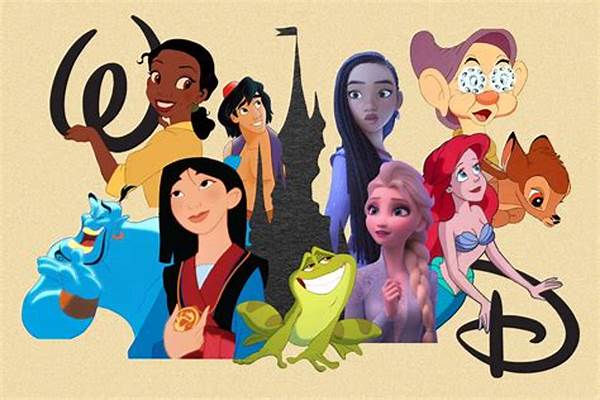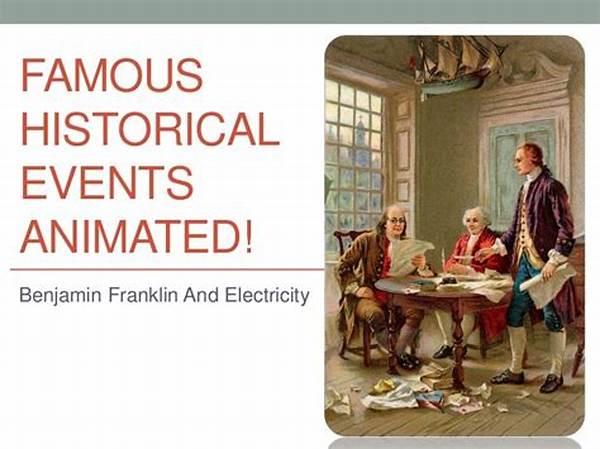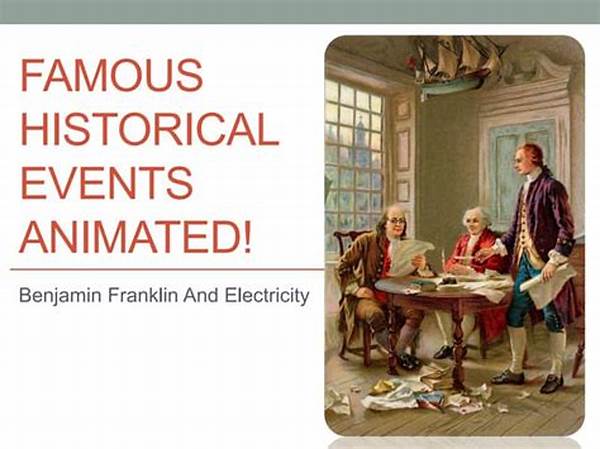In a world where moral dilemmas and ethical conundrums are just a click away, educators face the challenge of imparting wisdom in a way that genuinely resonates with young minds. Enter animated films—a vibrant and dynamic medium that’s not only entertaining but also capable of conveying profound ethical lessons. Forget the dry lectures and stale textbooks; teaching ethics through animated films can transform moral education into an engaging adventure. So, buckle up and let’s dive into the colorful world where ethics meets animation.
Read Now : Animation Exploring Ethical Issues
The Magic of Animation: Engaging Young Minds
Animated films are more than just flashy visuals and quirky characters. They serve as an effective medium to teach ethics to children and teenagers alike. The vivid colors and imaginative storytelling capture attention effortlessly, creating an environment where learning is both fun and impactful. Who wouldn’t prefer a thrilling adventure about friendship over reading a dull essay on ethics, right? Teaching ethics through animated films is like sneaking spinach into a smoothie—healthy values are seamlessly blended into engaging narratives.
These films craft worlds where choices and consequences come alive. Imagine a young child learning about honesty through Pinocchio’s nose-growing predicament, or the importance of courage from Simba’s journey in The Lion King. These stories make abstract concepts tangible, allowing viewers to better grasp ethical lessons. Such visual storytelling ensures that morals are not merely preached but lived through the characters that kids grow to love and relate to.
Furthermore, animated films resonate on an emotional level, creating lasting impressions that textbooks simply can’t achieve. This emotional engagement fosters empathy, encouraging viewers to step into the shoes of diverse characters. Watching animated heroes grapple with ethical challenges invites introspection and moral reasoning. Thus, teaching ethics through animated films is more than entertainment; it’s a pathway to nurturing well-rounded, ethically aware individuals ready to tackle real-world challenges.
Why Animated Films? Five Compelling Reasons
Bridging the Gap: From Screen to Reality
Admittedly, some skeptics might argue that animated films are just entertainment, not education. But imagine the impact of integrating these films into a structured educational framework. Teachers can use the narratives as case studies to prompt discussions, encouraging students to dissect decisions, analyze character motives, and predict outcomes. This interactive approach makes teaching ethics through animated films a collaborative effort between educators and students.
Moreover, animated films can serve as universal language, transcending cultural and linguistic barriers. They promote global citizenship by exposing viewers to diverse cultures and ethical perspectives. Such exposure is crucial in today’s interconnected world, where understanding and respecting different values are more important than ever. By teaching ethics through animated films, educators can prepare students to become thoughtful, global citizens equipped to navigate a world rich in diversity.
Unpacking the Lessons: A Deeper Dive
Key Takeaways from Animated Lessons
1. Moral Decision-Making: Characters often face moral decisions, showcasing the complexity of ethical choices.
2. Courage and Integrity: Stories frequently highlight the importance of staying true to one’s values despite challenges.
3. Consequences of Actions: Characters experience repercussions, teaching viewers that actions have consequences.
4. Empathy Building: Animated stories often evoke strong emotions, fostering empathy for diverse characters.
5. Conflict Resolution: Viewers learn strategies for resolving conflicts in ethical and compassionate ways.
6. Positive Role Models: Animated heroes provide role models that demonstrate ethical behavior.
7. Diversity and Inclusion: Films feature diverse cultures and characters, encouraging appreciation for diversity.
8. Critical Thinking: Viewers engage in critical thinking when analyzing characters’ choices and stories’ outcomes.
Read Now : Tribute To Iconic Animated Films
9. Resilience: Many narratives focus on overcoming adversity, teaching resilience and perseverance.
10. Community and Teamwork: Stories often highlight the importance of working together to solve problems and achieve justice.
Animation as a Tool for Ethical Education
The visual and emotional richness of animated films creates a fertile ground for ethical education. By focusing on character development and plot intricacies, these films possess the unique ability to foster critical thinking and moral reasoning in students. Imagine classrooms where students debate Simba’s choices, or explore the ethical dilemmas in Inside Out. It’s interactive, it’s engaging, and it’s what teaching ethics through animated films is all about.
This approach positions educators as facilitators rather than traditional lecturers, guiding students through introspective dialogues that promote a deeper understanding of ethics. Students are no longer passive recipients of information; they become active participants in their learning journey. This not only helps them understand ethics but encourages them to implement these values in their daily lives.
Embracing Animated Films in Education
Transforming Traditional Education
So, what if we combined traditional curricular methods with the vibrant narratives seen in films like Zootopia or Moana? The possibilities are endless! Teaching ethics through animated films not only rejuvenates the curriculum but also equips students with life skills. It creates an inspiring educational environment where learning is synonymous with creativity, exploration, and understanding.
By fusing the old with the new, education becomes a dynamic and inclusive experience. Films allow students to encounter ethical questions in a controlled setting, providing insight into a world beyond their immediate reality. This creates a unique platform for young minds to learn about empathy, integrity, and responsibility, setting a foundation for lifelong ethical awareness.
Transforming ethical education through animated films is not a far-fetched dream. It’s a necessary evolution that meets students where they are—immersed in digital storytelling and animated adventures. As we embrace this shift, we unlock endless possibilities for nurturing thoughtful, ethical leaders of tomorrow. So, let us take this journey into the animated world and let the magic of storytelling shape the ethical minds of future generations.
Reimagining Ethical Lessons
Animated films are not just for passive viewing; they’re catalysts for conversation and deep reflection. By weaving these narratives into regular ethics lessons, we create an atmosphere of active engagement. Imagine students eagerly dissecting characters’ choices in Finding Nemo or analyzing the themes of acceptance and identity in Frozen. This hands-on approach breathes life into theoretical concepts, making them tangible and relatable.
As educators harness the power of teaching ethics through animated films, students can see themselves reflected in characters’ arcs, making learning personal. The lessons taught through animation go beyond the screen, becoming integral to students’ worldviews. It fosters an environment where ethical discussions are not seen as chores but as explorative sessions that ignite curiosity and inspire growth, ultimately paving the way for a more compassionate and understanding society.
A Conclusion: Reflections on Animated Ethics
Animated films possess the remarkable power to educate, entertain, and inspire all at once. By integrating these vibrant narratives into formal education, we equip students with critical ethical thinking tools. Teaching ethics through animated films bridges the gap between theory and practice, ensuring lessons are not just absorbed but lived.
In this world of screens and digital storytelling, creating educational experiences that resonate emotionally is imperative. By connecting ethics with the magic of animation, we foster not only knowledge but also the empathy and ethical reasoning necessary for the leaders of tomorrow. We are not just teaching; we are shaping futures—one animated film at a time.



